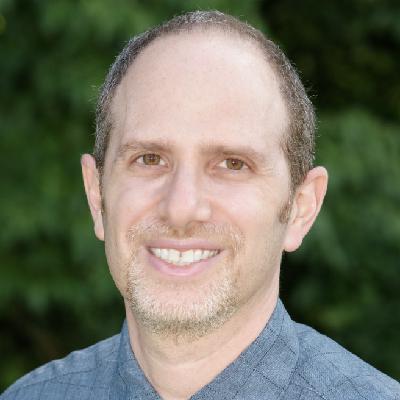Stress, Inflammation and Nervous System Regulation
Description
In this episode of the Fire, Soul, and Grace Podcast, host Dr. Kristi Tompkins welcomes Dr. Christine Smith, a Functional Medicine Practitioner and Doctor of Chiropractic. Dr. Christine specializes in holistic injury recovery, chronic inflammation prevention, stress management, nervous system regulation, and chiropractic care. Together, they discuss the importance of evaluating the whole person from a holistic perspective - childhood experiences, trauma, physical injuries, medication use, physical mobility, gut microbiome, food intolerances, and mental health to more comprehensively direct them toward healing.
Dr. Smith emphasizes how chronic stress can lead to GI tract disorders like dysbiosis and intestinal permeability as well as chronic inflammatory conditions like eczema, depression, joint pain, and much more. Dr. Christine discussed the importance of using recovery time like slowing down, sleep, meditation, breath work, and intuitively listening to what your body needs as opportunities to restructure lifestyle priorities and allow the body to heal. Tune in to this empowering conversation between Dr. Tompkins and Dr. Smith on how to holistically heal on a much deeper level and live a life of greater health, joy, and serenity.
[00:02:03 ] Dr. Christine Smith's background and areas of expertise.
[00:03:00 ] Understanding neuroscience: the brain, the nervous system and the body.
[00:08:49 ] The impact of human touch and touch deprivation.
[00:13:35 ] Trauma stored in the body's tissues.
[00:14:18 ] Potential energy theory.
[00:16:38 ] Emotional injury, trauma and holistic healing.
[00:18:33 ] Perception of your stress or illness and your health.
[00:23:40 ] Chronic stress and how it affects gut health.
[00:26:14 ] Functional medicine and simple, streamlined, actionable items.
[00:30:15 ] Simplicity is key to a healthier lifestyle.
[00:32:09 ] Supporting the body's innate intelligence.
[00:36:29 ] Meditation and the ability to change and heal.
[00:38:49 ] Sleep, meditation and recovery.
[00:41:29 ] Addiction to chronic stress.
[00:43:17 ] The biology of the stress response.
[00:47:30 ] Recovery, self-care practices and healing.
[00:51:06 ] Exercise, nature cure and healing.
[00:54:17 ] Intuition and listening to what your body needs.
In this episode of the Fire, Soul and Grace Podcast, Dr. Kristi Tompkins and Dr. Christine Smith discuss how emotional injuries and traumas that are not properly addressed can manifest in physical symptoms and affect organ systems in the body. The host, Dr. Kristi Tompkins explains that many people bury their traumas, assuming that time will heal all wounds. These unresolved emotional injuries often resurface during holistic care appointments with a chiropractic or naturopathic doctor, causing emotions to come up. Dr. Kristi and Dr. Christine emphasize the importance of taking a holistic approach to healing, looking at all the different organ systems in the body. They mention that emotional injuries, such as grief, can lead to physical injuries and worsen inflammation in the intestines. This inflammation can then cause leaky gut syndrome or intestinal permeability and dysfunction in other organs.
The episode also discusses how stored trauma in the body can be resurfaced and sometimes released through chiropractic adjustments, sometimes allowing the body to integrate and heal from the experience. Overall, the episode highlights the interconnectedness between emotional and physical health and the importance of addressing emotional injuries to promote overall well-being.
Dr. Christine Smith emphasizes the importance of listening to your body and becoming your health authority. This means paying attention to the signals and cues that your body gives you and taking responsibility for your well-being. Dr. Christine suggests that this ability to listen to your body has been lost in our society and that it is necessary to remember how to be responsible for ourselves and our bodies.
By listening to our bodies, we can better understand what they need and make informed decisions about our health. This includes recognizing when we are stressed and taking the time to prioritize self-care, such as taking breaks or listening to music to relax and improve productivity. Dr. Christine highlights the importance of knowing oneself and being aware of any changes or signals that our bodies may be giving us. For example, changes in physical appearance, mental health changes, and energy levels may indicate the need to adjust our lifestyle and self-care practices.
By becoming our own health authority, we can take control of our well-being and make choices that support our overall health. This involves being aware of our mental state, self-compassion and recognizing when we are trying to resist resting, sleeping and repairing our body. It also means understanding the importance of holistic lifestyle factors like exercise, hydration, and sleep, and being proactive in addressing any imbalances or deficiencies.
The episode also explores the impact of meditation, change, mental rehearsal, visualization and slowing down in many areas in our lives. The speakers emphasize that meditation is not just about becoming spiritual, but rather about making positive changes in one's life. They mention that meditation can help in changing behaviors, healing the body, and connecting with oneself.
The speakers explain that meditation can be a simple practice that only requires minutes each day. It doesn't have to be complicated or complex nor does it require any financial investment. The primary goal of meditation is to change, focus on what you want for your life, slow down, focus, breathe and reconnect with oneself. By taking the time to sit with oneself and practice mindfulness, individuals can calm their nervous system and create a state of relaxation.
They also mention that meditation can be seen as a form of mental rehearsal. By visualizing how one wants to be, act, and live their life, individuals can create a positive shift in their mindset and behavior. This simple reframing of thoughts and intentions can be just as impactful as foundational self-care practices, such as drinking water, getting enough sleep, fresh air and sunshine and eating nutritious foods.
Dr. Christine Smith and Dr. Kristi Tompkins discuss the connection between meditation and the brain's ability to heal and replenish. They compare meditation to physical therapy for the brain, where individuals train their brains to operate in a desired manner. They explain that the energy behind one's thoughts and intentions can influence the body's chemistry and cellular response. By practicing meditation and focusing on feelings of calm, peace, and relief, individuals can shift their energy













